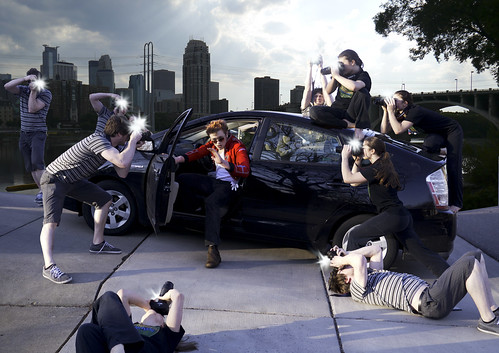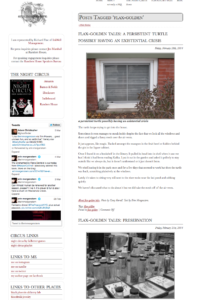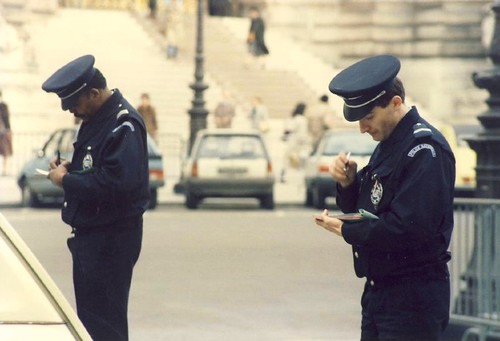
Before and After: Do a Little Work, Every Single Day. « The Happiness Project
http://gretchenrubin.com/happiness_project/2014/01/before-and-after-do-a-little-work-every-single-day/
Guest blogger Caroline McGraw talks to Gretchen about how working a little every day can make big scary tasks (writing a completed work) less scary and less hard.
Tips for Young Writers | Elizabeth Spann Craig
http://elizabethspanncraig.com/1627/tips-young-writers/
This guest post by Aidyl Ewoh could just as easily be called “Tips For Writers”. Great stuff here from “Surround yourself with positive people” to “Consistency trumps quantity” to “Read a lot” and “Find a writing community”… This blogger is singing my song!
Tales from the Den of Chaos: Belief and Possibility
http://www.denofchaos.com/2014/01/belief-and-possibility.html
A rumination on the magic of the “New Year”, which we writers can apply at any point in the calendar:
“…human belief is an incredibly powerful thing. When we believe something is possible, no matter how enormous a task it may be, if we really believe we can do it…we will. As long as we do not succumb to doubt, as long as we are willing to keep getting up after we’ve taken a fall, as long as we see these failures not as hard-stops but rather as learning how not to do that totally possible thing – we will do it.”
Flash Fiction Chronicles’ Favorite Short Fiction list 2013
http://www.everydayfiction.com/flashfictionblog/an-ffc-list-in-honor-of-short-story-month-2013/
Yup, I’m late discovering this post, but if you’re looking for something to read (or for places to send your own fiction) this is a great starting point.
3 Writing Tips You Can Steal From Animators
http://thewritepractice.com/animator-tips/
Three great tips here. Not the usual rehashing of story structure tips or character tips or how to make your dialogue sound real. Instead, this article talks about three great ways to actually make the writing happen.
flax-golden tales: simple steps « erin’s emporium of discount dreams & well-worn wonders
http://erinmorgenstern.com/2014/01/flax-golden-tales-simple-steps/
This is both a short story and an admonition to other artists, from Erin Morgenstern, author of the wildly successful novel The Night Circus. Read it slowly, then follow her advice!
When You’re Feeling Self-Doubt & a Lack of Motivation : zenhabits
http://zenhabits.net/down/
Not writing advice but great living advice that will help you get back to your writing on a day when you’re not sure you’re really a writer. (Hint: you are. Use the steps in this article to get yourself back to a place where you can be)
Action Reveals Character – Books & Such Literary Management : Books & Such Literary Management
http://www.booksandsuch.com/blog/action-reveals-character/
“In real life, it’s not what a person says that shows us who they are, it’s what they do…” Lovely short article on how to make your characters reveal themselves with subtlety.
It Takes The Time It Takes « terribleminds: chuck wendig
http://terribleminds.com/ramble/2014/01/20/it-takes-the-time-it-takes/
Chuck Wendig talks about his 20-year-long overnight success, and gives hope to the most impatient among us.
Ten things you can write in ten minutes or less – Time to Write
http://timetowrite.blogs.com/weblog/2014/01/ten-things-you-can-write-in-ten-minutes-or-less.html
What to write when you don’t have time to write 😉
Strategy of Loophole-Spotting #3: the Tomorrow Loophole. « The Happiness Project
http://www.gretchenrubin.com/happiness_project/2014/01/strategy-of-loophole-spotting-3-the-tomorrow-loophole/
Do you put off until tomorrow what could be done today?
Write Until You Die
http://killzoneauthors.blogspot.com/2014/01/write-until-you-die.html
James Scott Bell advocates never giving up on creativity, and offers some suggestions on how to do that! (Includes an adorable picture of Herman Wouk)
What Does 2 Billion Book Sales Look Like?: InfoGraphic | Lovereading UK
http://visual.ly/what-does-2-billion-book-sales-look
This is just awesome. Go and look.

![[Write On Wednesday] Time Slowed Down](https://storyaday.org/wp-content/uploads/2014/03/Screen-Shot-2014-02-10-at-1.35.17-PM.png)







![[Write On Wednesday] The Glitterati](https://storyaday.org/wp-content/uploads/2014/03/Screen-Shot-2014-02-10-at-12.31.58-PM.png)

![[Reading Room] Flax-Golden Tales by Erin Morgenstern](https://storyaday.org/wp-content/uploads/2014/03/Screen-Shot-2014-03-06-at-1.18.51-PM.png)

![[Write On Wednesday] Misunderstood](https://storyaday.org/wp-content/uploads/2014/02/Screen-Shot-2014-02-10-at-12.10.36-PM.png)
